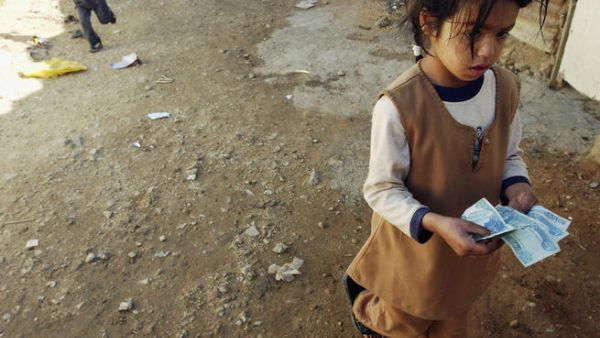Consumer confidence dropped to a near record low in the second half of 2012, according to the Byblos Bank-American University of Beirut Consumer Confidence Index issued Tuesday.
“The index reached its second-lowest point on a monthly basis in August, since its inception in July 2007,” a statement said.
While consumer confidence rose in July, September and December, the measure declined in August, October and November.
On a quarterly basis, the index slightly improved in the third quarter of the year and regressed in the fourth quarter of 2012, when it hit its second-lowest level.
The index posted a monthly average of 32.5 points in 2012, which reflects a drop of 37 percent from 2011 and a decline of 55.4 percent from 2010.
All 26 subcategories of the index declined during the final quarter.
“Domestic political volatility, repeated security breaches, the wave of kidnappings, the resumption of political assassinations, increasing concerns about spillovers from the escalating Syrian crisis ... were the main factors affecting the confidence of Lebanese consumers during the second half of 2012,” Byblos Bank’s chief economist Nassib Ghobril said
A deterioration in the quality of basic day-to-day public services also affected consumer confidence, he added, noting the only positive development during the time had been the temporary resumption of the National Dialogue, and the Baabda Declaration, both of which contained a slide in consumer sentiment.
The Present Situation and the Expectations subindexes slightly improved during the third quarter from an all-time low, but then resumed their decline in the fourth quarter of 2012.
The analysis of the results reveals that the near-term expectations of consumers were generally lower than their views of current conditions during the second half of 2012, the statement said.
Male consumers displayed a relatively higher level of confidence than their female counterparts, while consumers aged more than 60 displayed a higher level of confidence than other age brackets.
Mount Lebanon posted the highest confidence level across the administrative districts, followed by consumers in Beirut, the north, the south and the Bekaa Valley.
Druze consumers displayed the highest level of confidence among religious affiliations in the second half of 2012, followed by Christian, Sunni, and Shiite consumers.
“Consumer confidence and economic activity are neither immune nor resilient to chronic security deterioration and heightened political uncertainties, especially in the absence of a plan to stimulate growth,” Ghobril said.








